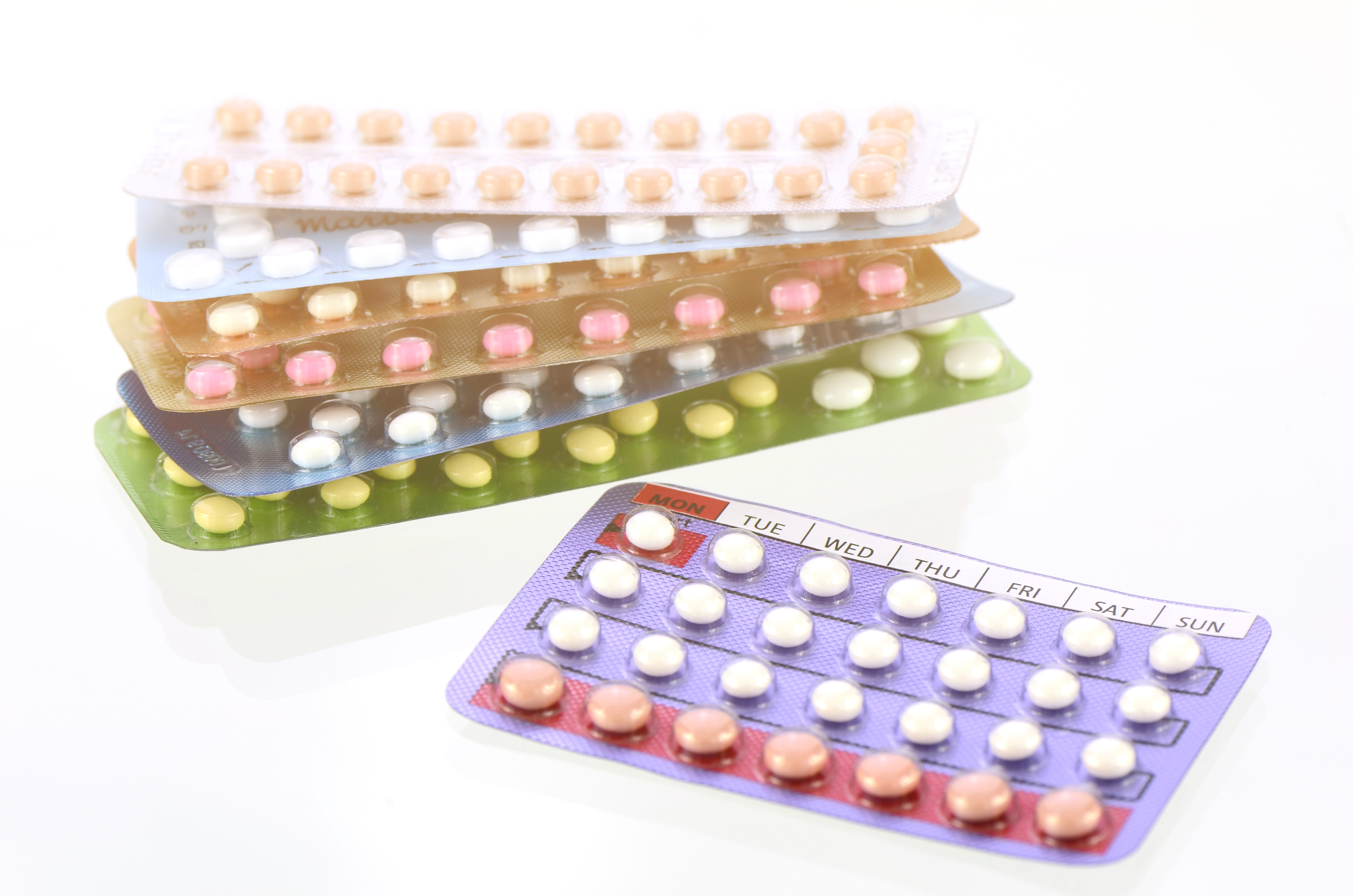Learning About Progestin Only Pill (POP)

The progestin only pill (POP) is a type of birth control pill you take every day to prevent pregnancy.
POP contains only 1 hormone (progestin). Other birth control pills contain 2 hormones (estrogen and progestin). POP is sometimes called the “mini-pill.”
How well does POP work?
- With typical use (this means not following the exact directions, for example, you might miss pills or take them late) POP is 91% effective.
- With perfect use (this means you follow the exact directions all the time) POP is 99.7% effective.
- Most pregnancies happen because people forget to take their pills.
- POP doesn’t protect you from sexually transmitted infections (STIs) and HIV.
How do I start taking the POP?
You need a prescription from your healthcare provider. Take one pill at the same time every day. When the pack is done, start a new pack the next day, even if your period hasn't ended or you didn't get a period.
There are different types of POPs.
For norethindrone POP (like Movisse and Jencycla) there is hormone in all 28 pills.
This type of POP works by:
- decreasing the amount of cervical mucus and making it thicker, which slows the movement of the sperm, making it harder to get to the egg
- slowing down the egg in the fallopian tube
- sometimes stopping an egg from being released (about half the time)
If you start taking norethindrone POP:
- on day 1 to 5 of your period, it works right away to prevent pregnancy
- on any other day, you need to use an extra form of birth control (like condoms) or don’t have vaginal sex for 48 hours
For drospirenone POP (like Slynd) there are hormones in the first 24 pills. The last 4 pills are hormone-free. This type of POP works by stopping the ovaries from releasing an egg. You can't get pregnant if you don't release an egg.
If you start taking drospirenone POP:
- on day 1 of your period, it works right away to prevent pregnancy
- on any other day, you need to use an extra form of birth control (like condoms) or don’t have vaginal sex for 7 days
What are the benefits of POP?
POP can be used by most people, including those who can't use estrogen or:
- are at higher risk of blood clots with other types of birth control pills, such as those over 35 years old who smoke or vape nicotine
- have a history of migraines with aura
- have side effects from other types of birth control
- have recently had a baby or are breast/chest feeding
You can get pregnant as soon as you stop taking POP.
It is safe to take POP for many years. There is no need to “take a break" from it.
How will POP affect my period?
Most people will experience changes to their period. These changes are not harmful and don't affect how well POP works.
- Your period might be early, late, or you might have spotting or bleeding at unexpected times.
- Some people who take norethindrone POP don’t have periods when taking POP.
- Most people who take drospirenone POP will get bleeding during the hormone-free pills.
What are the side effects of POP?
There is a chance that POP might cause:
- acne
- mild headaches
- breast or chest tenderness
- tiredness
- dizziness
- changes in mood
- decreased sex drive
- upset stomach (nausea)
- cysts on the ovaries
- extra hair on your face or body
If you have side effects, don't stop taking POP. Talk to your health care provider about your concerns.
If you think you could be pregnant and have been taking POP, talk to your healthcare provider. There is a higher risk of pregnancy outside of the uterus (ectopic pregnancy).
What if I forget to take a pill?
Taking POP more than 3 hours late is considered a “missed pill." Missing pills can increase the risk of pregnancy. What to do next depends on what kind of pill you're on, and how long it has been since your last pill.
How many missed pills and when? | Norethindrone POP | Drospirenone POP |
Forgot 1 pill that is 3 to 24 hours late | - Take it as soon as you remember, even if that means you take 2 pills in 1 day.
- Continue to take 1 pill a day until the pack is finished.
- You’re not protected from pregnancy until pills have been taken on schedule for at least 48 hours.
- Use an extra form of birth control (like condoms) or don’t have vaginal sex for 48 hours.
- Think about getting emergency contraception as soon as possible to help prevent pregnancy if you have vaginal sex without a condom before pills have been taken on schedule for at least 48 hours.
| - Take it as soon as you remember, even if that means you take 2 pills in 1 day.
- Continue to take 1 pill a day until the pack is finished.
- You’re still protected from pregnancy.
|
Forgot 2 or more pills | - Take the last missed pill.
- Continue to take 1 pill a day until the pack is finished.
- You’re not protected from pregnancy until pills have been taken on schedule for at least 48 hours.
- Use an extra form of birth control (like condoms) or don’t have vaginal sex for 48 hours.
- Think about getting emergency contraception as soon as possible to help prevent pregnancy if you have vaginal sex without a condom before pills have been taken on schedule for at least 48 hours.
|
| - Take the last missed pill.
- Continue to take 1 pill a day until the pack is finished.
- Skip the hormone-free pills if any of the last 7 days of hormone pills are missed. Start a new pack right away.
- You’re not protected from pregnancy until pills have been taken on schedule for 7 days.
- Use an extra form of birth control (like condoms) or don’t have vaginal sex for 7 days.
- Think about getting emergency contraception as soon as possible to help prevent pregnancy if you have vaginal sex without a condom either before pills have been taken on schedule for at least 7 days, or if the missed pills happened during days 1 to 7 of your pack.
|
Vomiting or severe watery diarrhea after taking pill | - If you vomited or had diarrhea more than 2 hours after taking it, no action is required.
- If you vomited or had diarrhea less than 2 hours after taking it, follow missed pill instructions.
| - If you vomited or had diarrhea more than 4 hours after taking it, no action is required.
- If you vomited or had diarrhea less than 4 hours after taking it, follow missed pill instructions.
|
If you need more help deciding what to do, talk to your healthcare provider or use the Sex & U – Stay on Schedule tool.
What else is important to know about consent, sexual activity, and birth control?
- You have the right to decide to have sex or not. Talk with your partner or partners about consent.
- There’s an 85% chance of becoming pregnant within one year, if no birth control is used for vaginal sex.
- Use a condom or barrier every time you have sex (oral, vaginal, anal). Condoms help prevent pregnancy, STIs, and HIV.
- You can lower your risk of HIV by taking HIV prevention medicine. Many Albertans can get it for free. Visit HIV PrEP to find out more.
- Transgender and gender diverse people who have a uterus can use hormonal birth control. It can help prevent pregnancy and make periods lighter and less painful.
Where can I find more information?
If you have questions, need to find a sexual health clinic near you, or want more information, call Health Link at 811 anytime, day or night, to talk to a registered nurse.
To see this information online and learn more, visit MyHealth.Alberta.ca/health/aftercareinformation/pages/conditions.aspx?hwid=custom.ab_birth_control_pop_inst.

Related to Sexual and Reproductive Health
For 24/7 nurse advice and general health information call Health Link at 811.
Current as of: May 28, 2024
Author: Sexual and Reproductive Health, Alberta Health Services
This material is not a substitute for the advice of a qualified health professional. This material is intended for general information only and is provided on an "as is", "where is" basis. Although reasonable efforts were made to confirm the accuracy of the information, Alberta Health Services does not make any representation or warranty, express, implied or statutory, as to the accuracy, reliability, completeness, applicability or fitness for a particular purpose of such information. Alberta Health Services expressly disclaims all liability for the use of these materials, and for any claims, actions, demands or suits arising from such use.
